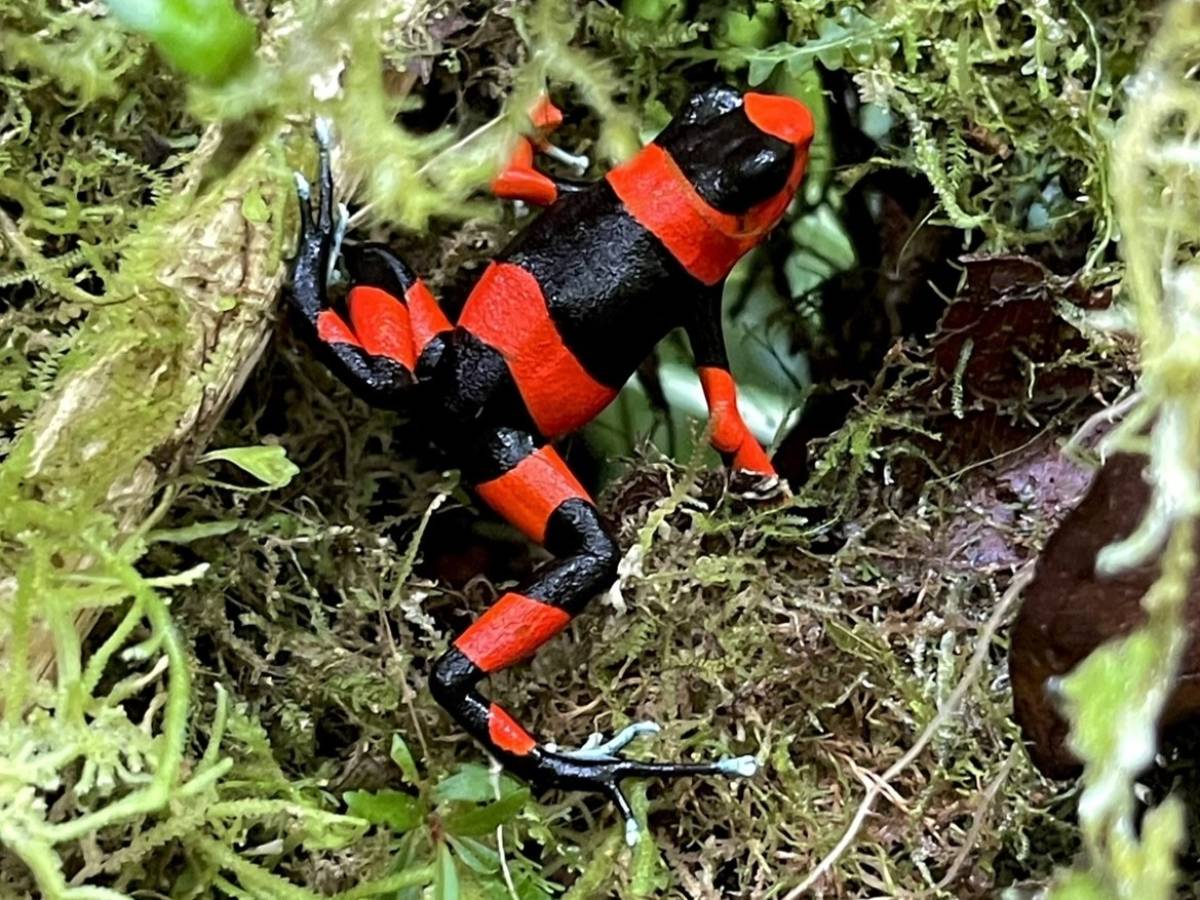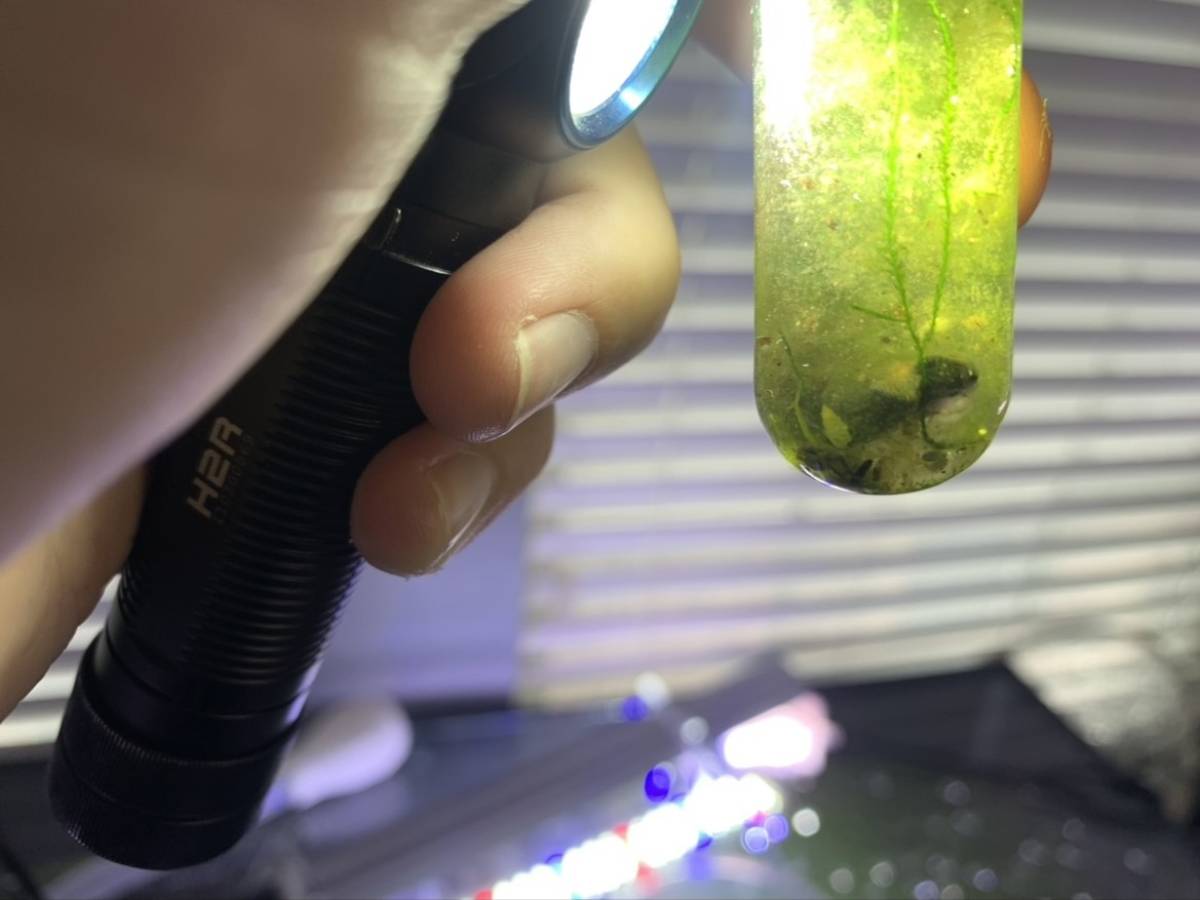Josh's Frogs
Auburn University et al: Better Feeding, Better Breeding for the Red-Banded Poison Frog

A wild male Red-Banded Poison Frog, Oophaga lehmanni. This species, also known as Lehmann's Poison Frog, is critically endangered in its native Colombia. Photo credit: Chris Buttermore
Josh's Frogs awarded a 2023 Amphibian Conservation Grant to the project Using Reproductive Physiology as a Tool to Improve the Conservation of the Critically Endangered Oophaga lehmanni, which is an international and multi-disciplinary collaboration of Auburn University, Dallas World Aquarium, and Zoológico de Cali in Colombia. To learn more about this project we did a virtual interview with Chris Buttermore, Curator of Amphibians at Dallas World Aquarium. Chris is also a Ph.D. student at Auburn University studying reproductive stress in amphibians (particularly Oophaga), as well as a committee member and consultant for the project.
How do you plan to use the grant money?
This money will go to pay for part of an oxygen sensor used to measure metabolic rates in Oophaga.
What does winning this grant allow you to do that you might not have otherwise?
It makes purchasing vital equipment for my project more of a possibility to get the research done.

The home eco type of Oophaga lehmanni. Photo credit: Chris Buttermore
When do you expect to see results from this? What are you hoping they look like?
Hoping to have results in early summer 2024 and I suspect there will be some differences in metabolic rates between some of the experimental groups.
How will this impact amphibian conservation specific to this instance?
This data will go towards enhancing our understanding of captive breeding regimes with Oophaga lehmanni in Colombia and will allow us to produce more fit offspring for release in the wild.
What are the larger implications of your work?
The larger implications are hopefully enhancing the wild populations and having the Oophaga lehmanni reach a point where they are no longer critically endangered.
What message or information would you like to share with the reptile and amphibian pet community?
Record data on the species you keep and look for patterns. Chances are you will find some information that someone is looking for and you may see correlations with success in reproducing the species.

An Oophaga lehmanni tadpole artificially raised using a method to reduce reproductive stress while increasing reproductive success and output. Species in the Oophaga genus are known as obligate egg-eaters: their tadpoles can only survive by consuming infertile eggs laid by the female. Photo credit: Chris Buttermore
Where could someone learn more about your project?
Check out AmphibiCast episode 132
How would someone make a donation to your organization?
Contact me directly: [email protected]
Anything else you feel we should know or discuss?
As a PhD student, I am pushed to apply for federal grant money, but I disagree with having taxpayers fund my research. I appreciate any opportunity to discuss my research and goals with like-minded people and skeptics alike. I am funding most of this research myself and I make all of my data public, post publication, to help keepers maintain their private collections.
